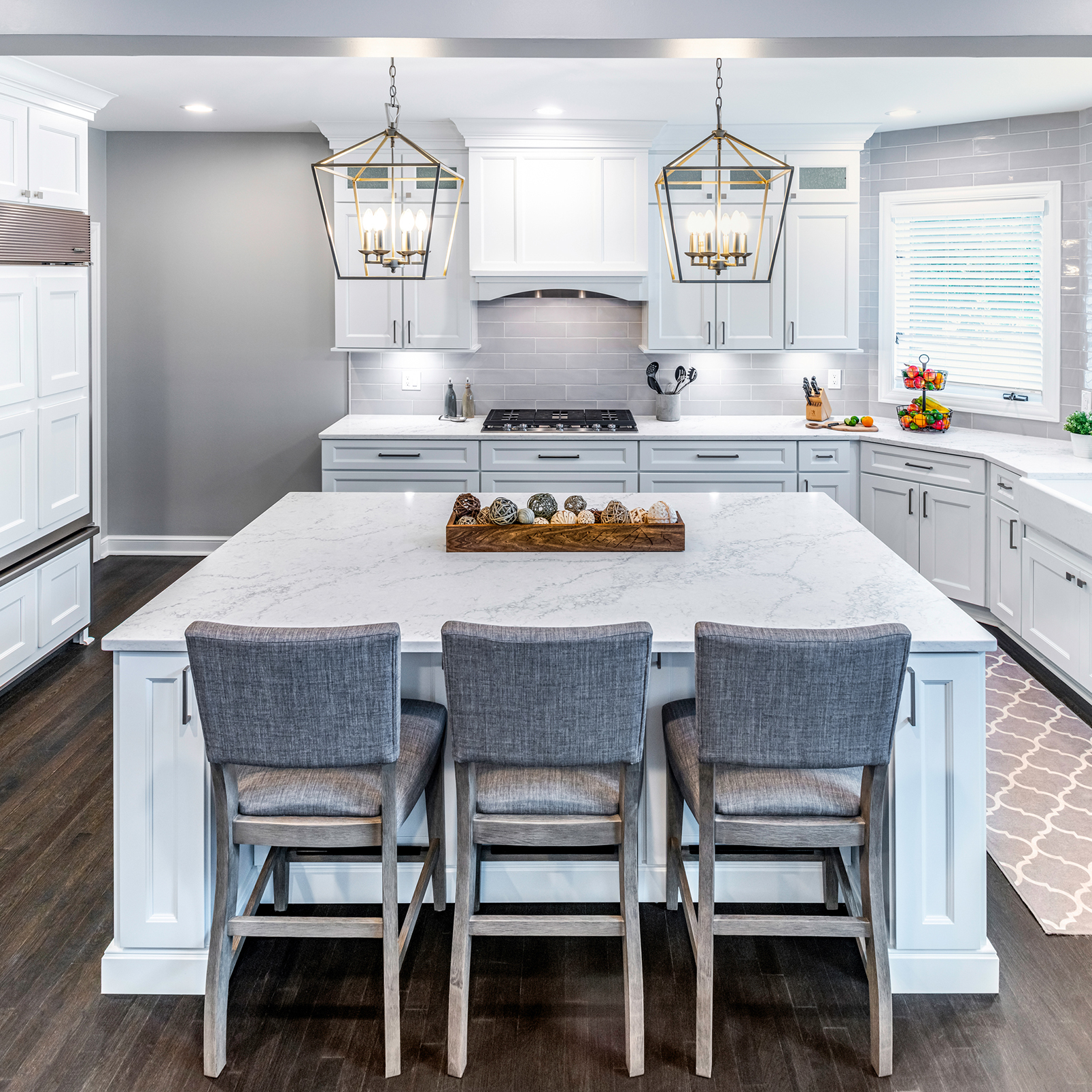How often should you replace countertops? Countertops are a central feature in any kitchen or bathroom, and their durability is one of the most important factors to consider when deciding how often to replace them. The need for a countertop replacement depends on various factors, including the material, the level of care, and how often the surface is used. Here’s a breakdown of when you might need to consider replacing your countertops.
1. Material Durability
Different countertop materials have varying lifespans. Here’s a rough guide to the longevity of popular materials:
- Granite and Quartz: These materials are known for their long-lasting durability. Granite can last 30 years or more with proper care, and quartz can last even longer. You may not need to replace these countertops unless you desire an aesthetic change or there is damage.
- Marble: While luxurious and beautiful, marble is prone to staining and scratching. If it’s well-maintained, marble can last 20 years or more. However, neglect or high-traffic use might lead to an earlier replacement.
- Laminate: One of the more affordable options, laminate countertops typically need to be replaced after 10-20 years, depending on wear and tear. Laminate is more susceptible to damage from heat, water, and chipping.
- Butcher Block: With regular maintenance, such as oiling and sanding, butcher block countertops can last up to 20 years. If neglected, they may require replacing sooner due to water damage, scratches, or deep cuts.
- Solid Surface: These countertops, such as Corian, last around 20-25 years. They are durable but can show wear over time, especially in high-traffic kitchens.
2. Signs It’s Time for a Replacement
Sometimes, it’s obvious when a countertop needs replacing. Look out for these signs:
- Cracks or Deep Stains: Cracks in the surface can harbor bacteria and make cleaning difficult. Stubborn stains, especially on materials like marble or laminate, may also signal the need for a replacement.
- Chips or Scratches: Significant wear in the form of chips or scratches can detract from the beauty and functionality of your countertops, especially in materials like marble or laminate.
- Water Damage: Warping, bubbling, or mold growth can occur if water seeps into the material, particularly for wood or laminate countertops.
- Outdated Aesthetic: Even if your countertops are still functional, you may want to replace them for aesthetic reasons. An outdated look or desire for a new material can prompt homeowners to invest in a fresh, modern countertop.
3. Maintenance Can Extend Lifespan
Regular maintenance can significantly extend the lifespan of your countertops. For example:
- Granite and Marble: Sealing your granite or marble countertops annually will protect against stains and moisture, keeping the stone looking pristine for years.
- Quartz: This material is low maintenance, but regular cleaning with non-abrasive cleaners will ensure it lasts longer without scratches or stains.
- Laminate: Be careful with hot pots and sharp knives, as laminate is sensitive to heat and scratches. Using cutting boards and trivets can prolong its life.
- Butcher Block: Regular oiling and sanding help maintain its appearance and protect against water damage.
4. When to Invest in a Full Replacement
If your countertops are more than 10-15 years old, showing significant damage, or no longer complement your kitchen or bathroom’s design, it might be time for a full replacement. Replacing countertops also adds value to your home, making it a worthy investment if you’re considering selling your property.
Conclusion
On average, how often should you replace countertops can last anywhere from 10 to 30 years, depending on the material and how well they are maintained. If you notice cracks, water damage, or are ready for a design refresh, it may be time to replace your countertops. Maintaining them properly can extend their life, but eventually, every countertop will need an upgrade. If you’re unsure, consult a professional to assess your current countertops and recommend the best course of action.

